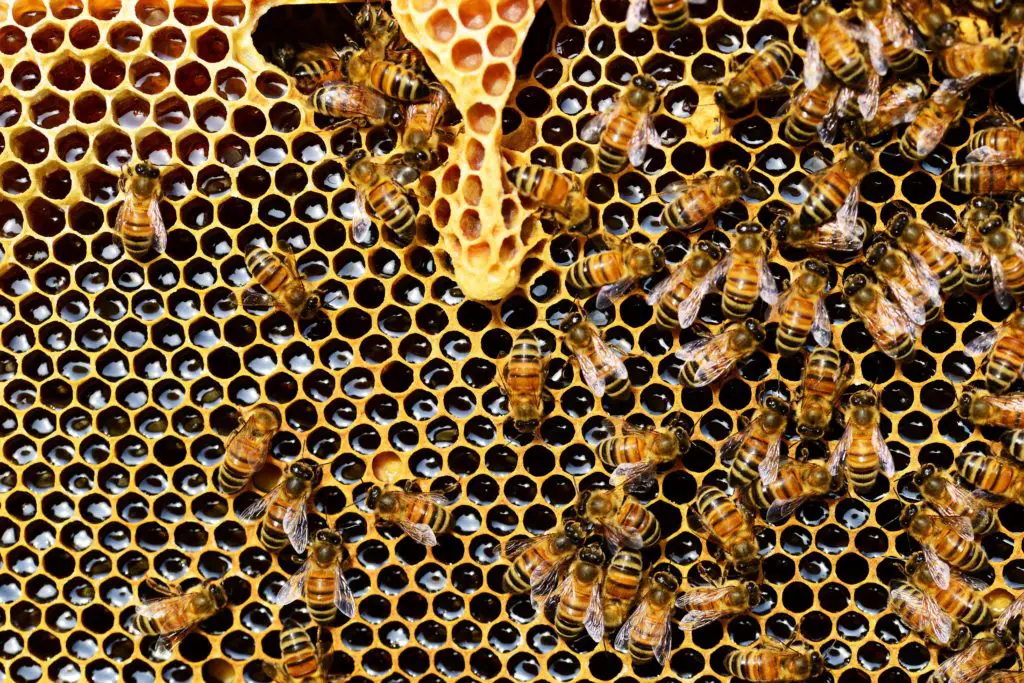Affiliate Disclaimer - As an Amazon Associate I earn from qualifying purchases.
It supports the website. So, Thank you
When you rent a property, you expect that the house will be comfortable, liveable and free from pests. However, there are thought to be around 14 million American homes that are currently affected by some sort of pest. These include things like roaches, mice, rats and of course, bees.
Bees aren’t usually considered to be a pest when they’re going about their daily honey-making business. In fact, most people would see them as an important part of the ecosystem, pollinating flowers and generally not causing a nuisance. But as with anything, bees need to be in their own habitat and not residing in or around your property.
If your home has been infested with bees then you may want to get out of there as soon as possible. Any good landlord will want their tenant to be happy but if they don’t deal with the problem you might be asking can I break my lease because of bees?
As a rule of thumb, a landlord is responsible for handling pest control within his or her properties. However, if the infestation is a result of your living conditions, then this responsibility falls on you.
Here is our guide on whether you can, or should, break your lease because of a bee infestation.
Table of Contents
Whose Responsibility Is Pest Control In A Rented Home?
Any landlord is responsible for ensuring that their property is habitable any time a new tenant moves in. This also means making sure that there are no pests or anything that could cause a pest infestation. Furthermore, your landlord is also responsible for maintaining this over the course of your stay.
In the event that there is a pest problem, it will be the responsibility of the landlord to find an appropriate solution. In most cases, this means hiring the services of a pest control company.
However, there may be times that the tenant can be charged for pest control services if their living conditions have resulted in the problem. This might include things like not taking out garbage regularly, unsanitary conditions, poor moisture control and other such things. That said, none of these are likely to attract bees and would be more likely to attract pests such as ants and cockroaches.
How Do I Handle Disputes Over Pest Control?
If you have gone through the proper channels to rent a home then you and your landlord will have signed a tenancy contract at the beginning of your stay. These contracts are often renewed in long-term leases so that any up-to-date information or clauses can be added.
You will often find that there is a clause within your contract that details who is responsible for pest control within the property. It is vital that you read this before signing so that you are clear on how this works.
In almost all cases, it will fall on the landlord to deal with the problem but if you find yourself in a dispute, there are things you can do. Laws will vary between states so it’s worth checking these before you take any further action.
If your landlord still refuses to do anything even after it has been demonstrated that they are responsible, we would not advise breaking your lease without getting legal advice.
Can I Break My Lease Because Of Bees?
Breaking your rental lease without knowing your legal rights and responsibilities could have some terrible repercussions both financially and legally. Therefore, even if you are struggling with an infestation of bees, it is not good practice to break your lease without speaking to a lawyer.
You will need to find a landlord/tenant lawyer that specializes in these kinds of cases. You’ll need to present all of the relevant information and explain to the lawyer what steps you have taken so far. Breaking a lease without good reason could come with hefty fees and even an appearance in court. When this happens, you may find it very difficult to be eligible for a rental in the future.
That said, there are times that it is acceptable to break your lease and one of these times is if the landlord is not upholding their responsibility to ensure the property is habitable. In this instance, it would be the landlord that broke the conditions of the contract first so you would be legally able to walk away.
However, you can’t simply pack up your belongings and leave; there is a process you’ll need to follow to stay on the right side of the law. You will first need to complain to either the department of public health or directly to your landlord, in writing.
In both of these situations, the landlord will have to respond to the problem within a set amount of days. If they do not, you are able to break your lease. How long the landlord has to respond will vary by state so again, it’s worth checking this out beforehand.
What Causes Bees To Nest On Or Near Your Home?
When you think of pests, you might not immediately think of bees. Most people would imagine critters like rats, roaches or ants, for example, which tend to appear when food is left out or conditions are not sanitary.
But bees are highly intelligent creatures so it makes you wonder why they would choose to nest in a home as opposed to something like a hollow tree. The reason is that many homes in the USA are made from wood and this makes a perfect location for nesting, especially where there are hollow parts.
Bees don’t nest in small numbers. When a new nest begins, this is largely made up from bees from another hive. Once a hive gets too large, up to 70% of the bee population will swarm and move on to another nesting site. They’ll often choose homes that are close to ample vegetation and may also prefer locations where there is a suitable microclimate.
There’s nothing that you have done to encourage bees to nest on or around your home. It’s more to do with the location and materials of your house. If you live in an urban area close to rural land or on the coast, then there is a larger chance of having problems with bees.
Sadly, there isn’t much you can do if your home is prone to bees apart from using natural remedies such as citronella, cinnamon and eucalyptus. All of these things are known to deter bees but there still isn’t any guarantee. The best thing to do is keep your property well maintained and work closely with your landlord to get on top of pest problems before they get out of control.
Conclusion
There are around 48 million rental units across more than 20 million rental properties in the United States so the rental market is really booming. But when you enter a rental contract, you would expect your landlord to take care of any problems and you’d be well within your rights to think this.
If you have problems with bees then your landlord is responsible for contacting and paying for pest control to eliminate the issue. However, some landlords may refuse to help and in this case, you might consider breaking your lease.
We would never advise breaking a lease without obtaining legal advice. Furthermore, while you are within your rights to break a lease if the property is not habitable, there is a process you must go through before you can do this to avoid any financial or legal implications for yourself.




